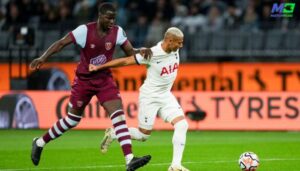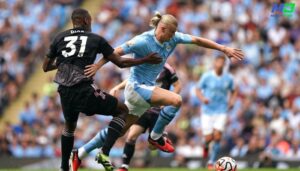
MLB EXPERT PICKS: Chicago Cubs VS Pittsburgh Pirates betting Predictions
The Pittsburgh Pirates will travel to face the Chicago Cubs today. This is the second game in a four-game series. Watch Cubs VS Pirates. MatchPlug has the MLB best bets today which you can rely on for Cubs VS Pirates. We are one of the Best sports betting sites to get previews for MLB matches. Predictions And Betting Preview For Chicago Cubs VS Pittsburgh Pirates Venue: Wrigley Field, Chicago. When: Friday, May 17th, 2024. Time: 19:20. Teams to play: Cubs and Pirates. MLB Expert Picks: MONEYLINE 1.881. Odds by 1XBet. Betting On The Chicago Cubs 1XBet Spread: +1.5 1XBet Moneyline: 1.982 1XBet Over/Under: Over 7.5 The Chicago Cubs come home after dropping two-of-three to the Atlanta Braves on the road. This season, they slash .237/.320/389 which is 18th, 10th, and 14th in the MLB respectively. At home, they slash .251/.340/.425. Against Paul Skenes in his debut, Mastrobuoni went 2-for-2, Morel went 1-for-2, Suzuki and Tauchman went 1-for-3, Happ and Gomes are 0-for-2, Bellinger and Busch are 0-for-1. Chicago will start right-hander Kyle Hendricks today. Hendricks is 0-3 with a 10.04 ERA, in his last start, he went five innings, permitted one run on two hits against Pittsburgh. At home this season, he started two games and has a 10.13 ERA. The Cubs have a team ERA of 3.69 which ranks 11th. Betting On The Pittsburgh Pirates 1XBet Spread: -1.5 1XBet Moneyline: 1.881 1XBet Over/Under: Under 7.5 The Pittsburgh Pirates will start right-hander Paul Skenes today. It is his second career MLB start. In his debut, which was also against the Cubs, he went four innings permitting three runs on six hits, and conceded one homer while striking out seven. As a pitching staff, the Pirates have a team ERA of 4.05 which ranks 17th. Pittsburgh slash .223/.302/.349 which ranks 27th, 24th and 27th in the MLB. On the road the Pirates slash .225/.313/.340. Against Hendricks, Joe bats .500 in 12 ABs, Cruz is 1-for-2, Williams is 1-for-3, McCutchen hits .233 in 43 ABs, and Tellez hits .222 in 18 ABs. MatchPlug Prediction For Chicago Cubs VS Pittsburgh Pirates Paul Skenes should be more relaxed for his second start, causing a more dominant outing here, which is why experts like the Pirates on the Moneyline. Hendricks on the other hand, struggled this term. And while he did win Pittsburgh in his last start, he has taken a hard hit at Wrigley and should continue for the Cubs here. Final Prediction: Pittsburgh Pirates Moneyline.












